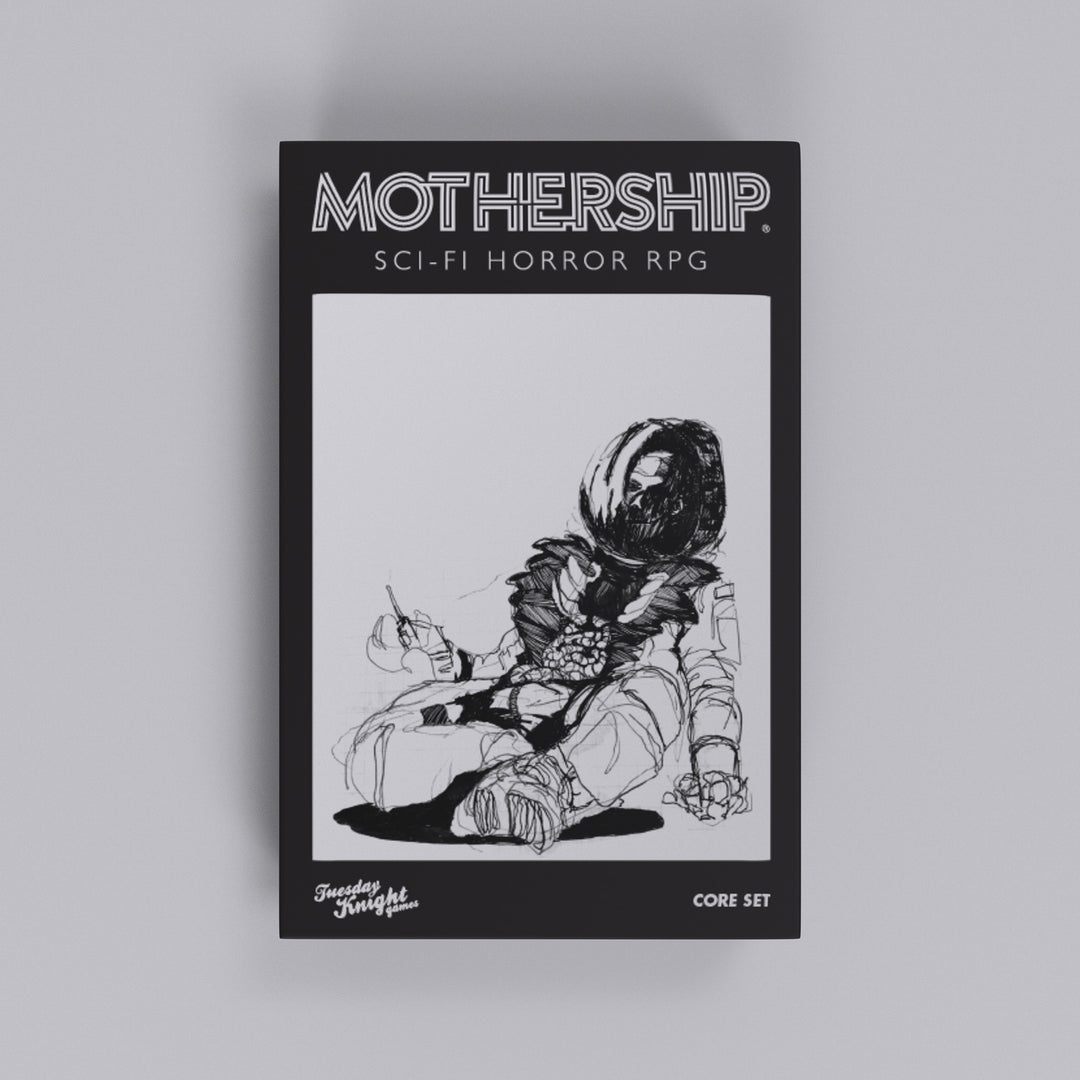Mothership Science Fiction; Cosmic Horror; Dark; Survival; Exploration-Driven; Streamlined; Team-Based
Mothership is a science fiction horror tabletop role-playing game emphasizing player survival in a hostile universe. Its core mechanics are designed for ease of play and quick character creation, focusing on narrative-driven experiences and team-based problem-solving. The game uniquely combines a simple d100 Panic Engine with a focus on player stress and panic, setting it apart from other horror RPGs. It targets players who enjoy high-stakes, investigative gameplay in a dark, supernatural setting.
Theme and Setting
Mothership plunges players into a bleak future where humanity has spread among the stars, only to encounter unimaginable horrors. The game draws heavily from the claustrophobic and isolating atmospheres of films like Alien and Event Horizon. Characters explore derelict spacecraft, investigate strange new worlds, and confront hostile alien life, all while teetering on the brink of sanity. The setting emphasizes survival horror, where resources are scarce and danger lurks around every corner. Modules like Dead Planet, A Pound of Flesh, and Gradient Descent offer diverse scenarios within this overarching theme, each presenting unique challenges and terrifying encounters.
Core Mechanics and Rules
Mothership uses a d100 Panic Engine, making it easy to determine the likelihood of success for any given task. Players roll percentile dice and must roll under their relevant attribute or resistance to succeed. Character creation is streamlined, with all rules printed directly on the character sheet, allowing for rapid character generation even mid-session. The game features four classes: Crew member, Scientist, Android, or Marine, each with minor bonuses to attributes, skills, and special abilities. A key mechanic is the Stress and Panic system, which is triggered by failing actions or save rolls. High stress levels can lead to panic checks, adding an element of unpredictability and emphasizing the psychological toll of survival. Combat has been clarified and simplified, replacing opposed rolls with a roll-to-hit followed by a damage roll system. Health is managed through a Wounds system, which is more visceral than traditional hit points.
What Makes It Unique
Mothership distinguishes itself through its focus on player stress and panic. The d20 Panic Die, introduced in later editions, speeds up Panic Checks and makes the system easier for new players. The game also emphasizes ease of use for both players and Wardens (GMs). Rules are designed to be easily referenced, fitting onto clean "control panel" style spreads, minimizing the need to flip through multiple pages. The character sheet itself serves as a quick-start guide. The Armor Point system is another unique feature; armor acts as destructible points, adding strategic depth to combat. Finally, Mothership's modular design, with a library of over 100 campaigns, rules supplements, and in-universe texts, allows for highly customizable gameplay experiences.
Target Audience and Player Experience
Mothership is aimed at players who enjoy narrative-driven, team-based investigative gameplay with a strong emphasis on horror and survival. The game appeals to those who appreciate a high-stakes environment where character death is a real possibility. It is designed to be easy to learn but difficult to master, offering a rewarding experience for both veteran and new RPG players. The focus on streamlined rules and quick character creation makes it suitable for one-shot sessions and longer campaigns alike. Player experience is centered around exploring the unknown, confronting cosmic horrors, and managing the psychological impact of a dangerous universe.



